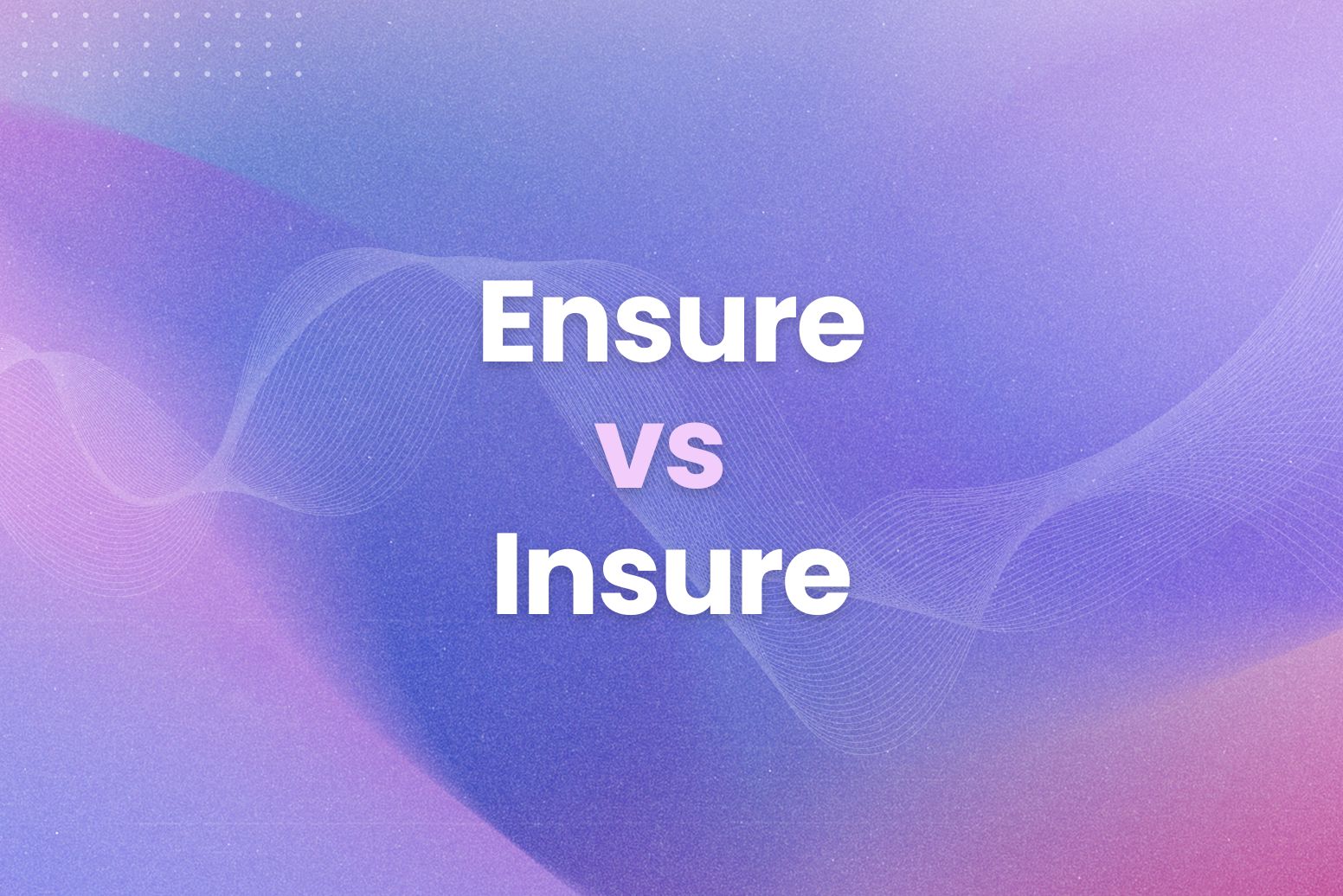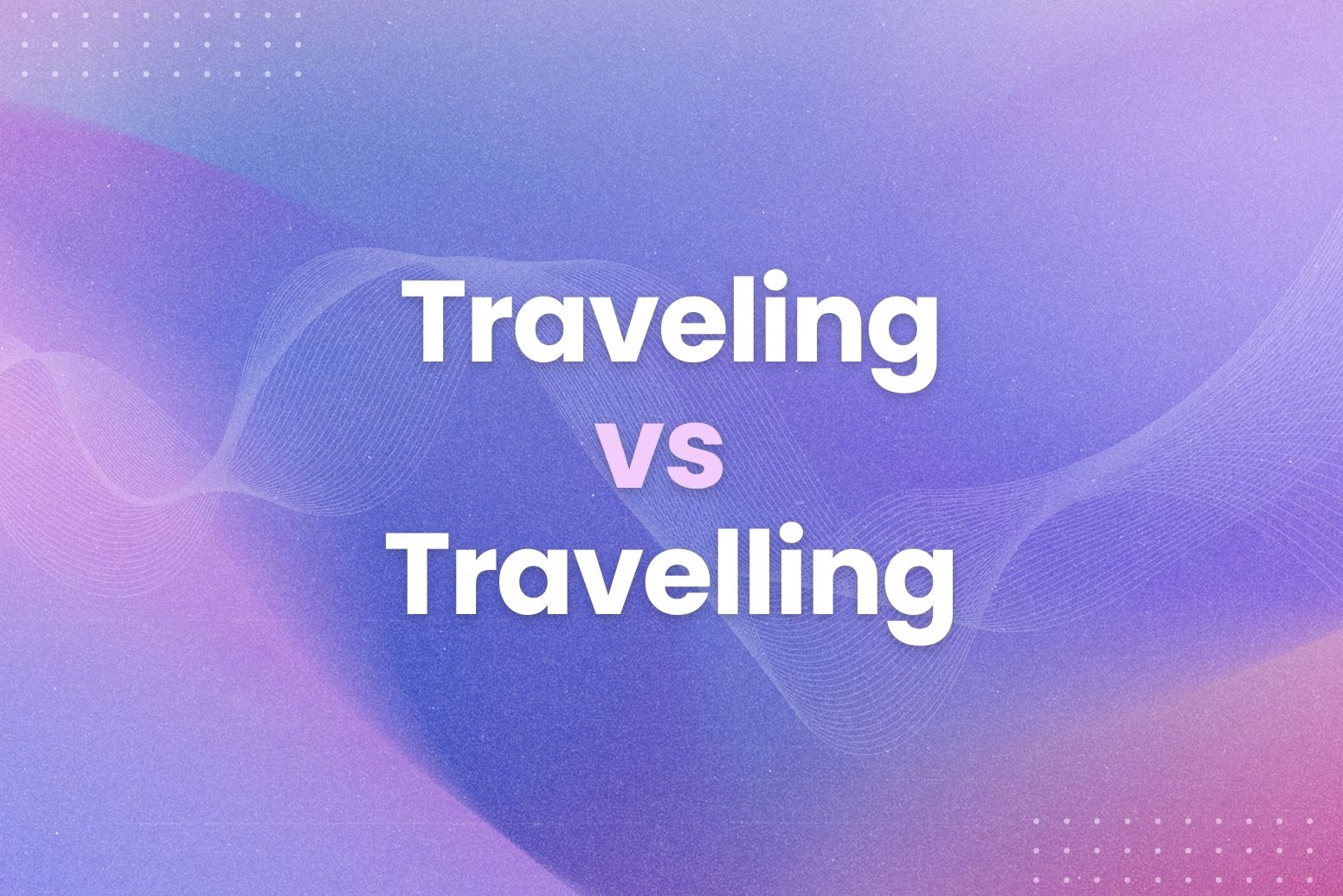Words matter. Especially when you’re trying to communicate clearly. Using the wrong word can create confusion or even undermine your message. For instance, have you ever paused and wondered whether to use “Ensure vs Insure”? These words are often mixed up, but they have distinct meanings. Consequently, using them correctly is crucial for effective writing.
Many writers struggle with these words. In fact, a study by Grammarly found that “ensure” and “insure” are among the most commonly confused word pairs in English. In other words, you’re not alone. What we’ll cover:
- The precise definitions of ensure and insure.
- When to use ensure vs insure in different contexts.
- Common mistakes to avoid.
- Memory tricks to help you remember the difference.
The Precise Definitions of Ensure vs Insure
Firstly, ensure means “to make certain that something will occur.” In other words, you’re taking steps to guarantee a specific outcome. For example, you might ensure that you have enough gas in your car before a long trip. Similarly, you might ensure that your presentation slides are error-free before a big meeting.
Secondly, insure primarily relates to financial protection. Specifically, it means “to protect against financial loss.” For instance, you insure your car against damage. Likewise, you might insure your home against fire or theft. In short, insure deals with insurance policies.
Therefore, the key difference lies in the context. Ensure is about making something certain. On the other hand, insure is about protecting against financial risk. Consequently, mixing them up can lead to miscommunication.
To clarify the difference further, here’s a helpful table:
| Word | Definition | Example |
| Ensure | To make certain that something will occur. | Ensure you have enough time to complete the task. |
| Insure | To protect against financial loss. | Insure your car against theft. |
For instance, you ensure that your documents are backed up. However, you insure your computer against theft. To clarify, one is about certainty, the other about financial protection. As a result, using the correct term adds clarity to your writing.
When to Use Ensure vs Insure in Different Contexts
Use ensure when you’re guaranteeing a specific outcome. For example, “We took steps to ensure the project’s success.” Similarly, you might say, “Please ensure all doors are locked before leaving.” In these cases, you’re taking action to make sure something happens.
Secondly, use insure when discussing insurance policies. For instance, “I need to insure my new camera.” Likewise, “The company insures its employees against workplace accidents.” Here, the focus is on financial protection against potential loss. Consequently, using insure in non-financial contexts is usually incorrect.
However, there’s a small wrinkle. In British English, insure is sometimes used more broadly, similar to ensure. But in American English, the distinction is much stricter. Therefore, if you’re writing for an American audience, stick to the financial protection meaning for insure.
Here’s a quick tip: If you can replace the word with “guarantee” or “make certain,” ensure is likely the correct choice. On the other hand, if “protect against loss” fits, use insure.
For example:
- Correct: “We ensure customer satisfaction.” (We guarantee it.)
- Correct: “We insure our shipments against damage.” (We protect against financial loss.)
- Incorrect: “We insure the meeting starts on time.” (Use ensure here.)
Moreover, Arvin can help you ensure you’re using the correct word. For instance, if you’re unsure, you can ask Arvin to check your sentence. Arvin’s powerful grammar checking will catch these subtle errors.
Common Mistakes to Avoid
The most frequent error is using insure when you mean ensure. For example, writing “We insure that all products are tested” is incorrect. The correct phrasing is “We ensure that all products are tested.” In this case, you’re guaranteeing a process, not providing financial protection.
Don’t overthink it. Sometimes, people get so caught up in choosing between ensure and insure that they use neither. Consequently, they resort to weaker phrasing. For instance, instead of saying, “We ensure timely delivery,” they might say, “We make sure delivery is on time.” While not grammatically incorrect, it lacks the precision of ensure.
Thirdly, remember the British English usage. While insure can sometimes mean ensure in British English, it’s best to avoid this usage when writing for an American audience. Therefore, stick to the financial protection meaning of insure in American English to avoid confusion.
Here are some examples of common mistakes and their corrections:
- Incorrect: “We insure the project is completed on time.”
- Correct: “We ensure the project is completed on time.”
- Incorrect: “The company ensures its employees against accidents.”
- Correct: “The company insures its employees against accidents.”
Memory Tricks to Help You Remember the Difference between Ensure vs Insure
Firstly, think of ensure as relating to certainty. The “e” in ensure can remind you of “exact” or “established,” suggesting a guaranteed outcome. For instance, you ensure that your facts are exact before writing.
Furthermore, associate insure with insurance. Both words start with “in” and relate to financial protection. Therefore, if you’re talking about protecting against loss, insure is your word. For example, you insure your car with an insurance policy. This simple association makes it easy to recall.
Here are a couple more quick tricks:
- Ensure = Make Sure: If you can replace the word with “make sure” without changing the meaning, use ensure.
- Insure = Insurance: If the context involves insurance policies or financial protection, use insure.
Another way to remember is to create a mental image. For example, picture yourself ensuring a door is locked by turning the handle (certainty). Then, picture an insurance policy protecting a house from fire (financial protection). These visual cues can be surprisingly effective.
Never Second-Guess Your Grammar Again (with Arvin)
Mastering the nuances of ensure vs insure elevates your writing. Consequently, understanding their distinct meanings prevents miscommunication and adds clarity to your message. Remember, ensure is about guaranteeing an outcome, while insure relates to financial protection.
Here are the key takeaways ensure vs insure:
- Ensure means “to make certain.”
- Insure means “to protect against financial loss.”
- Context is crucial for choosing the right word.
- Memory tricks can help solidify the difference.
Therefore, with Arvin, you can ensure your writing is always polished and error-free. Arvin’s powerful grammar checking, powered by GPT-4, catches subtle mistakes like confusing ensure and insure. In short, Arvin helps you write with confidence.
FAQs
Is it correct to ensure or insure?
It depends on the context. If you’re guaranteeing an outcome, use ensure. If you’re talking about financial protection, use insure.
When to use ensure?
Use ensure when you want to make certain something happens. For example, “I ensure all my emails are proofread.”
How do you use the word insure?
Use insure when referring to insurance policies or protecting against financial loss. For instance, “I insure my house against fire.”
How do you use the word ensure?
Use ensure to express certainty or guarantee. For example, “Please ensure you arrive on time.”






